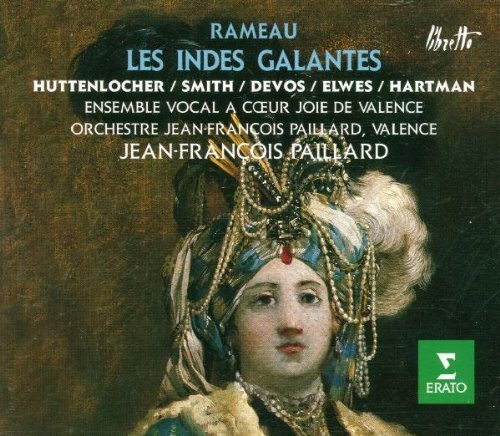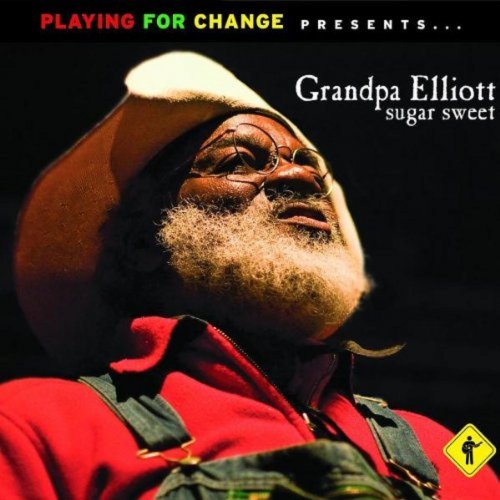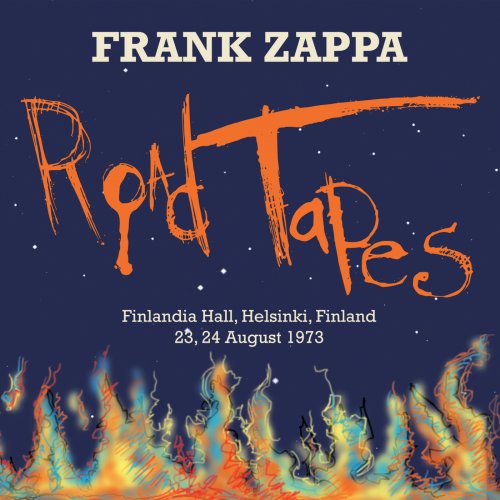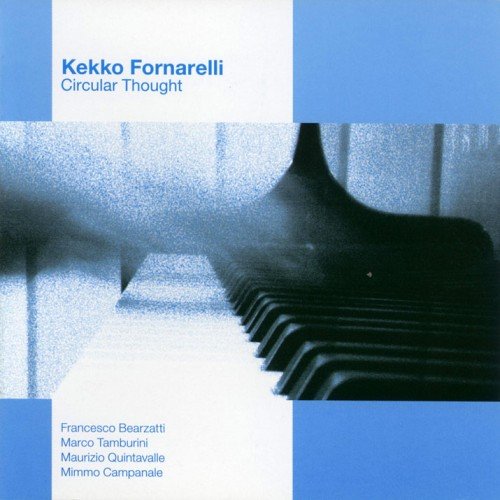Jean-François Paillard - Rameau: Les Indes Galantes (1994)

Artist: Jean-François Paillard
Title: Rameau: Les Indes Galantes
Year Of Release: 1994
Label: Erato Disques
Genre: Classical, Opera
Quality: FLAC (image+.cue,log,scans)
Total Time: 215:44
Total Size: 1,14 Gb
WebSite: Album Preview
Tracklist: Title: Rameau: Les Indes Galantes
Year Of Release: 1994
Label: Erato Disques
Genre: Classical, Opera
Quality: FLAC (image+.cue,log,scans)
Total Time: 215:44
Total Size: 1,14 Gb
WebSite: Album Preview
CD 1:
01 - [Les Indes galantes] Overture to Act 1
02 Prologue - Vous, qui d'Hebe suivez les lois (Hebe)
03 Musettes, resonnez (Hebe, Chorus)
04 Amants surs de plaire (Hebe)
05 Air grave pour deux polonais - Premier menuet - Deuxieme menuet
06 Qu'entends-je (Hebe)
07 Vous nous abandonnez (Chorus)
08 Bellone les entraine (Hebe) - L'Amour parait arme (Hebe, L'Amour)
09 Pour remplacer les coeurs que vous ravit Bellone (Hebe)
10 Ranimez vos flambeaux (L'Amour)
11 Traversez les plus vastes mers (L'Amour, Hebe, Chorus)
12 Act 1 - C'est Osman qui me suit (Emilie, Osman)
13 Il faut que l'amour s'envole (Osman) - Que je ne verrai plus, barbare (Emilie)
14 La nuit couvre les cieux (Emilie, Chorus)
15 Que ces cris agitent mes sens (Emilie, Chorus)
16 D'infortunes captifs vont partager nos peines - Un de ces malheureux approche en soupirant (Emilie, Valere)
17 Sur ces bords une ame enflammee (Valere) - Esclave, je viens de t'entendre (Emilie, Osman, Valere)
18 Volez, Zephirs, volez (Emilie, Valere, Chorus)
19 Hatez-vous de vous embarquer (Valere)
20 Regnez, regnez, Amour regnez (Emilie)
CD 2:
21 Fuyez, fuyez, vents orageux (Emilie)
22 Partez. On languit sur le rivage, partez (Emilie, Chorus)
23 Act 2 - Vous devez bannir de votre ame (Carlos, Phani)
24 Viens hymen, viens m'unir (Phani)
25 Elle est seule (Huascar)
26 Non, non, je ne crois pas tout ce que l'on assure - On vient, dissimulons nos transports a leurs yeux (Phani, Huascar)
27 Soleil, on a detruit tes superbes asiles (Huascar)
28 Brillant Soleil (Huascar)
29 Clair flambeau du monde (Huascar, Chorus)
30 Permettez astre du jour (Huascar)
31 Premiere gavotte - Deuxieme gavotte
32 Dans les abimes de la terre (Chorus)
33 Arretez. Par ces feux le ciel vient de m'apprendre - Quoi. Plus que le peril (Huascar, Phani, Carlos)
34 Pour jamais l'amour nous engage (Phani, Carlos, Huascar) - La flamme se rallume encore (Huascar)
35 Act 3 - Mon abord parait l'interdire (Ali, Tacmas) - Elle parait livree a quelque inquietude (Tacmas)
36 Amour, Amour, quand du destin j'eprouve la rigueur (Zaire)
37 Quoi, Zaire ose aimer (Zaire, Tacmas)
38 Cessez ce vain discours - Que vois-je, c'est le temeraire - Suspendons … ma vengeance (Zaire, Tacmas, Fatime)
39 Dans ces jardins l'amour m'appelle (Fatime, Tacmas) - Achevez, nommez-vous (Fatime, Tacmas, Zaire, Ali)
40 Deviez-vous vous meprendre (Zaire, Tacmas)
41 Ah, Seigneur, quel moment (Fatime, Ali, Tacmas, Zaire)
42 On vient (Tacmas) - Dans le sein de Thetis, precipitez vos feux (Chorus)
CD 3:
43 L'eclat des roses les plus belles (Tacmas)
44 Triomphez agreables fleurs (Zaire, Chorus)
45 Premier air pour les Persans - Deuxieme air pour les Persans
46 Papillon inconstant (Fatime)
47 Ballet des Fleurs - Premier air pour les Fleurs - Deuxieme air pour les Fleurs
48 Gavotte en rondeau
49 Orage
50 Air pour boree
51 Premier air pour Zephire
52 Deuxieme air pour Zephire
53 Air pour les Fleurs
54 Gavotte
55 Act 4 - Nos guerriers, par mon ordre (Adario)
56 Rivaux de mes exploits, rivaux de mes amours (Adario)
57 Damon, quelle vaine esperance (Alvar, Damon)
58 Dans ces lieux (Damon, Alvar) - Ne puis-je vous flechir (Alvar, Damon, Zima)
59 La terre, les cieux et les mers (Damon, Zima)
60 Le coeur change a son gre (Zima, Alvar, Damon) - Que vois-je (Alvar, Zima, Adario, Damon)
61 Deja, dans les bois d'alentour (Damon, Alvar) - Je ne vous peindrai point les transports de mon coeur (Adario, Zima)
62 Sur nos bords, l'amour vole (Zima, Adario)
63 Bannissons les tristes alarmes (Adario, Chorus)
64 Forets paisibles (Zima, Adario, Chorus)
65 Premier menuet pour les Guerriers et les Amazones - Deuxieme menuet
66 Regnez, plaisirs et jeux (Zima)
67 Chaconne
Performers:
Hébé, Emilie, Zaïre - Gerda Hartmann (Soprano)
Bellone, Osman, Huascar, Ali, Don Alvar - Philippe Huttenlocher (Bass)
L'Amour, Phani, Fatime, Zima - Jennifer Smith (Soprano)
Valère, Carlos, Damon - Louis Devos (Tenor)
Tacmas, Adario - John Elwes (Tenor)
Ensemble Vocal “A cœur joie” de Valence
Orchestre Jean-François Paillard, Valence
Jean-François Paillard, conductor
It seemed improbable, when the first recording of Rameau's opera-ballet or ballet-hiroique, Les Indes galantes (1735), was issued by CBS last summer [1974], that another would follow so soon [1975]. But here we are with a "version originale—enregistrement integral". Well, very nearly original, and very nearly integral. If it were wholly original it would lack the colourful fourth entrée, "Les sauvages", which Rameau added for the 1736 revivals in response to criticism; but it does give the original version of the third entrée, "Les fleurs", which was modified by Rameau shortly after the first performance. In general, it closely follows the standard text of Dukas's edition, the one published by Durand in the "Oeuvres completes", but there are some minor cuts and adjustments. I am specially glad to have a complete version of "Les fleurs" ; more of the ballet is given here than in the Malgoire recording.
This new version is more traditional than Malgoire's. There are no 'authentic instruments'; indeed in an additional accompanying booklet the conductor JeanFrancois Paillard has stern things to say about their use. The orchestra here is of fourteen strings and eight wind, with harpsichord and percussion; their playing is generally tidy and well poised in the dance movements but never specially spirited. The choir seems rather large and their sound is not ideally clear. There is no strong character about the solo singing. Gerda Hartman, who has half the soprano roles, has a voice quite pretty and quite pure, and she can draw a reasonably shapely line; but the sound is thin, the general effect rather watery. The big storm scene for Emilie in the first entrée, "Le turc genereux", is beyond so ladylike a singer. Jennifer Smith, though one would not suspect her of being French, is more at home in this style, and I was glad that the music for Phani in "Les Incas" fell to her (she does the elaborate lines of "Viens hymen" very nicely, floating her voice effectively), as well as the more demanding role of Fatime in "Les fleurs", with the charming air "Papillons inconstant", and above all Zima's music in "Les sauvaps", which contains two little gems as well as the superb gavotte (adapted from a harpsichord suite) with Adario and the chorus. All her music is tastefully done.
Of the male soloists, John Elwes does particularly well as Tacmas in "Les fleurs", where there is some notably expressive and properly flexible treatment of recitative; and he limns the lines of his more lyrical music with considerable delicacy. Louis Devos is the other tenor, pleasantly smooth and singing with much tenderness in Valere's air in "Le turc", "Sur ces bords", as well as the duet with Emilie, "Volez, Zephyrs"; his tone is even and agreeable right up to the very top of this high part. The baritone, Philippe Huttenlocher, runs the gamut of five different roles quite successfully. He is a shade light for the heaviest of them, though can bluster reasonably convincingly; and he can produce elegant and stylish singing in the more lyrical music like Huascar's louresong "Permettez astre du jour" in "Les Incas". Some general points. The continuo line in the recitatives and the short airs is often heavy and cumbersome, and the combination of this with a forward balance for the bass-line and a backward one for the harpsichord make one much more than usually aware of the top-and-bottom nature of the writing. Double-dotting is done wherever it is needed; notes inegales are used wherever their use can be firmly justified. The recording is good without being specially clear or bright. The main accompanying booklet includes an authoritative note by Francois Lesure as well as the libretto, both very poorly translated.
There is no doubt in my mind that the CBS set gives a more vivid account of the work, with its 'original instruments', its lively rhythms, its generally more strongly committed soloists. Yet I think this Erato is the one to have, because of its greater professionalism - it is much better in tune, better balanced (with nine violins against Malgoire's five), better in ensemble - and also because it is more complete. It may seem a little pale next to the enthusiastic Malgoire set, but in all it gives a fairer account of Rameau's work.
This new version is more traditional than Malgoire's. There are no 'authentic instruments'; indeed in an additional accompanying booklet the conductor JeanFrancois Paillard has stern things to say about their use. The orchestra here is of fourteen strings and eight wind, with harpsichord and percussion; their playing is generally tidy and well poised in the dance movements but never specially spirited. The choir seems rather large and their sound is not ideally clear. There is no strong character about the solo singing. Gerda Hartman, who has half the soprano roles, has a voice quite pretty and quite pure, and she can draw a reasonably shapely line; but the sound is thin, the general effect rather watery. The big storm scene for Emilie in the first entrée, "Le turc genereux", is beyond so ladylike a singer. Jennifer Smith, though one would not suspect her of being French, is more at home in this style, and I was glad that the music for Phani in "Les Incas" fell to her (she does the elaborate lines of "Viens hymen" very nicely, floating her voice effectively), as well as the more demanding role of Fatime in "Les fleurs", with the charming air "Papillons inconstant", and above all Zima's music in "Les sauvaps", which contains two little gems as well as the superb gavotte (adapted from a harpsichord suite) with Adario and the chorus. All her music is tastefully done.
Of the male soloists, John Elwes does particularly well as Tacmas in "Les fleurs", where there is some notably expressive and properly flexible treatment of recitative; and he limns the lines of his more lyrical music with considerable delicacy. Louis Devos is the other tenor, pleasantly smooth and singing with much tenderness in Valere's air in "Le turc", "Sur ces bords", as well as the duet with Emilie, "Volez, Zephyrs"; his tone is even and agreeable right up to the very top of this high part. The baritone, Philippe Huttenlocher, runs the gamut of five different roles quite successfully. He is a shade light for the heaviest of them, though can bluster reasonably convincingly; and he can produce elegant and stylish singing in the more lyrical music like Huascar's louresong "Permettez astre du jour" in "Les Incas". Some general points. The continuo line in the recitatives and the short airs is often heavy and cumbersome, and the combination of this with a forward balance for the bass-line and a backward one for the harpsichord make one much more than usually aware of the top-and-bottom nature of the writing. Double-dotting is done wherever it is needed; notes inegales are used wherever their use can be firmly justified. The recording is good without being specially clear or bright. The main accompanying booklet includes an authoritative note by Francois Lesure as well as the libretto, both very poorly translated.
There is no doubt in my mind that the CBS set gives a more vivid account of the work, with its 'original instruments', its lively rhythms, its generally more strongly committed soloists. Yet I think this Erato is the one to have, because of its greater professionalism - it is much better in tune, better balanced (with nine violins against Malgoire's five), better in ensemble - and also because it is more complete. It may seem a little pale next to the enthusiastic Malgoire set, but in all it gives a fairer account of Rameau's work.



![The Baroque Jazz Ensemble - The Baroque Jazz Ensemble (feat. Ira Schulman) (2025) [Hi-Res] The Baroque Jazz Ensemble - The Baroque Jazz Ensemble (feat. Ira Schulman) (2025) [Hi-Res]](https://img.israbox.com/img/2025-12/19/yehoqbmzkuwk180c26lz85clx.jpg)

![Ready Player 3 - Ready Player 3 (2025) [Hi-Res] Ready Player 3 - Ready Player 3 (2025) [Hi-Res]](https://www.dibpic.com/uploads/posts/2025-12/1766128773_cover.jpg)


![Frank Sinatra, Count Basie - It Might As Well Be Swing (1964) [2021 SACD] Frank Sinatra, Count Basie - It Might As Well Be Swing (1964) [2021 SACD]](https://www.dibpic.com/uploads/posts/2025-12/1766090910_scan-1.jpeg)